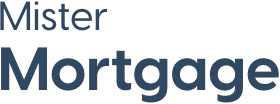

One of the most popular questions our mortgage specialists get is: Can entrepreneurs get a mortgage in the Netherlands?
Yes, you can get a mortgage as an entrepreneur in the Netherlands. However, there are a few things to consider when applying for a mortgage as a starting entrepreneur:
Financial position
Most mortgage lenders to assess your application will consider your business financials. If your business is yet to be profitable or has a limited track record, it may be impossible to obtain a mortgage.
Business forecasts
The bank asks you to provide a detailed introduction to your business and proof of income when applying for a mortgage as a starting entrepreneur. This can include projected income statements and other financial documents.
When can entrepreneurs apply for a mortgage?
To apply for a mortgage as an entrepreneur, you must have at least one year of running your business. In exceptional cases, it can be six months. Please note: requirements for entrepreneurs vary per mortgage lender.
Which documents do you need to apply for a mortgage?
If you are an entrepreneur and applying for a mortgage in the Netherlands, you may be required to provide the following documents:
-
Proof of identity: This can include a valid passport or ID card.
-
Proof of income: This can include your tax returns, financial statements, and other documents that show your income and financial stability.
-
Business plan: Lenders may require a business plan that outlines your business goals and objectives and your marketing and financial strategies.
-
Credit history: Lenders will typically review your credit report to evaluate your creditworthiness and financial history. The bank does this themselves by default.
-
Property documents: You may need to provide documents related to the property you want to purchase, such as the purchase agreement, the valuation report, and possibly a technical inspection.
How do banks calculate mortgages for entrepreneurs in the Netherlands?
When calculating a mortgage for a self-employed individual in the Netherlands, banks will typically consider the following factors:
-
Income: lenders will want proof of a stable and consistent income from self-employment. This may involve reviewing your tax returns, financial statements, and other documents that show the profitability of your business.
-
Debt-to-income ratio: this measures how much debt you have relative to your income. Lenders typically want a debt-to-income ratio of 30% or lower when evaluating a mortgage application.
-
Down payment: the amount of money you can put towards a down payment will also be considered by lenders. A larger down payment can increase your chances of being approved for a mortgage and may result in a lower interest rate.
-
Property value: the value of the property you want to purchase will also be considered by lenders. They will typically want to ensure that the loan-to-value ratio (the amount of the mortgage compared to the property's value) is within a certain range.
Dutch banks that offer mortgages for starting entrepreneurs, for example:
-
ABN AMRO is a large Dutch bank that offers self-employed individuals a range of mortgage products.
-
Rabobank is a Dutch bank that offers mortgages to self-employed individuals with stable incomes and good credit.
-
ING Bank is a Dutch bank that offers mortgages to self-employed individuals, focusing on supporting small businesses and entrepreneurs.
-
Woonfonds is a Dutch mortgage provider that offers mortgages to entrepreneurs with at least one year of running a business with or without NHG.
It is important to note that mortgage requirements and terms may vary by lender, and you may be required to meet certain criteria to qualify for a mortgage. Contact our mortgage specialist to compare available options for you.
Schedule a complimentary introductory call with our mortgage specialists. We specialize in mortgages for expats and are dedicated to navigating you through the home-buying process.
-
Get clarity on your financial possibilities.
-
Access to a trusted network.
-
Highly competitive rates and flexible terms.
-
English translations of bank documents are shared.

- 100% Independent Advice




